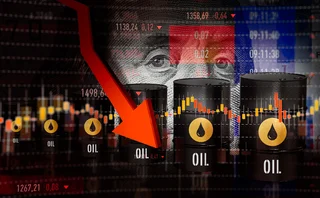Video: Volatile energy prices will be the norm in 2020, says Phillips 66 risk manager
IMO 2020, volatility and shareholder activism will be major challenges next year, says Earl Burns
Upcoming rules by the International Maritime Organization to lower the amount of sulphur in shipping fuel will present one of the biggest challenges to energy markets in 2020, says Earl Burns, general manager, global market risk, pricing and enterprise risk management, at refining giant Phillips 66.
Coming into force in January 2020, the new rules will reduce the sulphur content allowed in shipping fuel from the current limit of 3.5% to 0.5%. Ships will then have to either use compliant low-sulphur fuel oil or fit exhaust-cleaning technology known as scrubbers, which extract sulphur emissions allowing the old high-sulphur fuel oil to continue to be used.
The impact of the rules will be felt far beyond the shipping world, changing refinery economics and pricing. The rules will bring significant change to fuel and distillates markets and will affect refiners and traders, says Burns. Ultimately, this will contribute to increased volatility, which will be another major challenge in 2020, he says.
“Volatility is going to become the norm in 2020. We saw record volatility last year, high volatility this year. I think that’s just going to continue,” he says.
A third challenge next year, he believes, will be shareholder activism. The growth of the sustainable investment movement and popularity of environmental, social and governance-type funds illustrates the power of shareholder activism. Energy firms are certainly coming under closer scrutiny and pressure to disclose more about their impact on the environment as well as their susceptibility to transition risk.
“I think [shareholder activism] will have an effect on the industry as well,” he says.
More on Oil & refined products
Energy Risk reaction: Venezuela and oil sanctions
Energy Risk talks to Rob McLeod at Hartree Partners about the energy risk implications of the US’s control of Venezuelan oil
Energy Risk Europe Leaders’ Network: geopolitical risk
Energy Risk’s European Leaders’ Network had its first meeting in November to discuss the risks posed to energy firms by recent geopolitical developments
US shutdown leaves commodity traders without key data
Commodity traders are ‘flying blind’ without Commitment of Traders reports
Energy Risk at 30: Learning from the past
Energy Risk looks back at the seminal events and developments that have shaped today’s energy markets
Why Iran tensions failed to rattle markets
Despite initial fears, traders say risks were signposted and investors had deleveraged after April
Oil and products house of the year: Macquarie Group
Energy Risk Awards: Bank pioneers innovative deals in illiquid markets, taking on esoteric risk
Podcast: should negative oil prices be allowed?
Did negative oil prices signify the market was operating effectively, or that something was wrong?
Podcast: the future of retail investment in oil
Will negative prices and big losses curb retail investors’ appetite for oil futures over the longer term?







